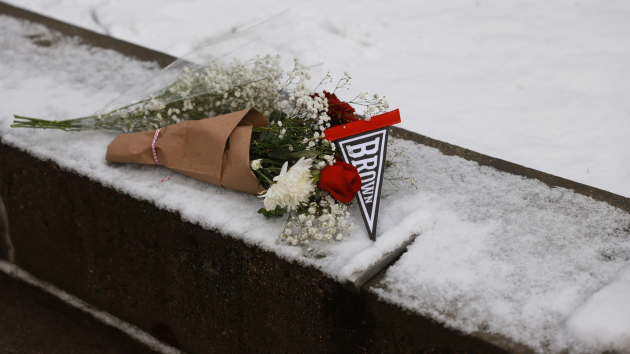Migrant farm workers go on high alert amid immigration raids
Written by ABC Audio. All rights reserved. on February 8, 2025
(LOS ANGELES) — California’s Central Valley is considered “America’s bread basket,” supplying a quarter of the nation’s food and producing 40% of its fruits, nuts and other table foods.
However, roughly half of California’s farm workers are undocumented immigrants, so President Donald Trump’s plan to fast track mass deportation and the images of Immigration and Customs Enforcement (ICE) raids across the country have spread fear on these farms.
It started shortly before Trump returned to office on Jan. 20. The U.S. Border Patrol raids in Central Valley’s southern Kern County — dubbed “Operation Return to Sender” — hit close to home for people in the region.
“Op Return to Sender brought 78 undocumented noncitizens, many w/criminal records, out of the shadows,” USBP Chief Patrol Agent Gregory Bovino wrote in a Jan. 16 post on X.
The people arrested didn’t all have criminal records, and immigrant rights groups say fear is trickling through undocumented workers.
“You have families that are being ripped apart. You have community members that are living in fear,” immigration attorney Ana Alicia Huerta told ABC News. “They’re scared to go outside. They’re asking neighbors and friends who have status to drive them back and forth because they’re concerned that they may be targeted.”
Advocacy groups say the raids have prompted some farmworkers to stay home, which could reduce the harvesting of produce and other goods.
“It’s not easy to live in fear, when we are the ones putting food on your table,” farmworker Xochilt Nuñez told ABC News in Spanish. “Since the beginning I’ve said, do not bite the hand that feeds you.”
Nuñez has worked in the fields of Central Valley for 16 years, and said she loves the feeling of the soil, the smell and “la libertad” — the freedom of the fields.
“We are glad to be at work at 6 a.m. and have an hour commute,” she said. “We do it happily, from the bottom of our hearts. Because we love this soil.”
She noted that immigrants are “living in terror” because they’re concerned immigration officials will come to the fields. She also expressed concern that farm workers staying home for fear of deportation or actually getting deported may result in produce prices increasing due to a labor shortage.
“Can you believe there are people who have been here for more than 35 years, working, paying taxes and do not have the right to a work permit?” Nuñez said. “We need to be empathetic with those people. Because they do not rest — and the economy lays on their backs.”
The United Farm Workers Foundation, the largest union representing America’s farmworkers, held a virtual press briefing in January after Border Patrol detained at least two of their union members.
“Both members had lived and worked in the United States for over 15 years,” they said. “One leaves behind two children under the age of 10, and the other leaves behind four children between the ages of four and 10.”
Elizabeth Strater, national vice president and director of strategic campaigns for the UFW, said that a report claiming 75% of farm workers were staying home from work is not accurate. She noted that the workers can’t afford to miss work, especially since it is peak harvest season for citrus.
“Farm workers are enduring great anxiety after the chaotic immigration sweeps targeting farmworker communities earlier this month. They still have to provide for their families,” she said. “Regardless of status, they all deserve better than to be profiled and terrorized for simply doing the work it takes to feed this country.”
Some immigrant families are too afraid to leave home to even get groceries, prompting groups like Latino nonprofit Celebration Nation to set up food drives. Its founder, Flor Martinez Zaragoza, told ABC News the group will be feeding farm workers every day for the next six weeks.
“It’s very ironic that we’re feeding those that feed the nation because they’re very food insecure,” she said during a food drive in Fresno.
In Kern County, rapid response groups are teaming up with immigration attorneys like Huerta — she emphasized that people have rights regardless of their status.
“If you’re arrested, don’t sign anything,” she said. “Ask to speak to an attorney.”
Huerta said this isn’t the first time her community has had to fight for their humanity. Central Valley is home to famed labor organizers and civil rights leaders like her grandmother Dolores Huerta, along with César Chávez.
Three generations later, their grandchildren are carrying on that legacy. Andrés Chávez does so as the executive director of the National Chavez Center.
“If there’s anything that the last week has taught us, it’s that it’s going to be a long four years. And so folks like myself and groups like ourselves are having to prepare for this long-term fight,” he told ABC News. “And I think back to my tata César’s words — he would always say, ‘You only lose when you give up.'”
Copyright © 2025, ABC Audio. All rights reserved.





